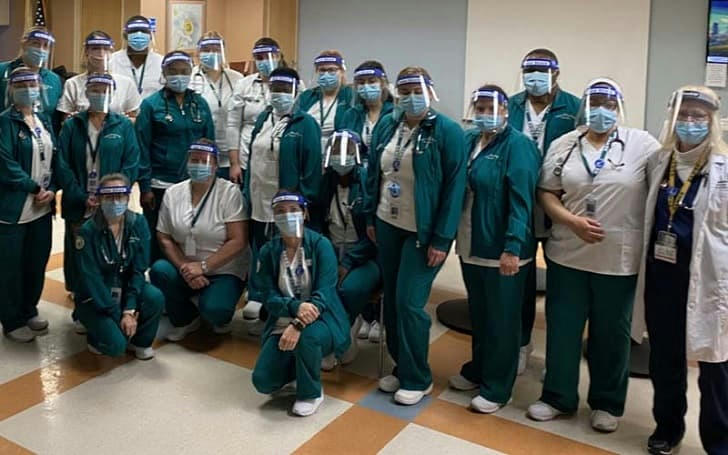Basic Nursing Skills and Practice Course for LPN Nurses
The Basic Nursing Skills and Practice Course for LPN Nurses is designed to equip licensed practical nurses (LPNs) with essential skills needed for providing high-quality patient care. As critical members of the healthcare team, LPNs perform a wide range of duties, from administering medication to monitoring patient health. This course focuses on the foundational nursing skills that LPNs need to excel in their roles, ensuring they are prepared for daily patient care and clinical tasks.

1. Introduction to LPN Nursing Practice
The course begins by providing an overview of the LPN's role within the healthcare system. LPNs work under the supervision of registered nurses (RNs) and physicians, providing essential care such as taking vital signs, assisting with daily activities, and monitoring patient conditions. A strong emphasis is placed on effective communication, both with patients and healthcare teams, to ensure accurate care delivery and patient safety.
2. Patient Assessment and Monitoring
One of the core components of the course is patient assessment. LPNs must be able to accurately monitor and record a patient's vital signs-blood pressure, heart rate, respiratory rate, and temperature. The course teaches participants how to recognize normal versus abnormal readings, helping them identify potential issues early on. LPNs also learn to assess a patient's overall physical and emotional condition, including signs of pain, distress, or changes in health status.
3. Medication Administration
A critical responsibility for LPNs is medication administration. This course covers the basics of safely administering medications, including understanding different routes (oral, intravenous, intramuscular, and subcutaneous), and verifying dosage. LPNs are trained in the proper techniques for each method, ensuring they follow correct protocols to prevent medication errors.
Medication safety is a key focus, with training on verifying patient identities, checking for drug interactions, and recognizing possible side effects. The course also emphasizes the importance of adhering to the Five Rights of Medication Administration (right patient, right drug, right dose, right time, and right route) to minimize the risk of errors and improve patient safety.
4. Infection Control and Hygiene

Infection prevention is essential in healthcare. LPNs are trained in infection control practices, including proper hand hygiene, the use of personal protective equipment (PPE), and safe handling of contaminated materials. The course also includes instruction on wound care, such as cleaning and dressing wounds, and monitoring for infection.
LPNs also learn to assist in catheter care, maintaining proper hygiene for patients with indwelling catheters, and preventing urinary tract infections (UTIs). Proper infection control practices are crucial for preventing healthcare-associated infections (HAIs) and ensuring patient safety.
5. Patient Mobility and Assistance
LPNs play an important role in helping patients with mobility and physical activities. This part of the course teaches safe techniques for transferring patients from beds to chairs, assisting with walking, and ensuring that patients are positioned properly to prevent bedsores and pressure ulcers.
LPNs also learn about the use of assistive devices, such as walkers, wheelchairs, and crutches, and are trained in body mechanics to avoid injury while lifting or moving patients. The course covers how to assist patients with activities of daily living (ADLs), including eating, bathing, and dressing, ensuring their comfort and dignity.
6. Emotional Support and Patient Interaction
Beyond physical care, LPNs must provide emotional support to patients. This course emphasizes the importance of active listening and providing comfort in stressful situations. LPNs are trained to communicate with empathy, answer questions, and address patient concerns, which helps build trust and improve patient satisfaction.
The course also covers recognizing signs of emotional distress, such as anxiety or depression, and understanding when to refer patients to mental health professionals or offer additional support. Strong emotional support enhances the overall patient care experience and contributes to better outcomes.
7. Documentation and Reporting
Accurate documentation is a crucial part of LPN practice. LPNs are trained to document patient assessments, vital signs, medications administered, and any changes in a patient's condition. The course also covers the importance of timely and clear reporting of any significant changes to RNs or physicians.
LPNs learn to use electronic health records (EHR), a standard practice in many healthcare settings. They are taught to ensure that all patient information is up-to-date and accurate to maintain continuity of care and meet legal and regulatory requirements.

8. Conclusion
The Basic Nursing Skills and Practice Course for LPN Nurses provides essential training in the skills required for providing high-quality patient care. From patient assessments and medication administration to infection control and emotional support, the course covers a wide range of topics that LPNs need to master.
By the end of the course, participants are equipped with practical skills and knowledge to handle the responsibilities of daily patient care confidently. The course emphasizes the importance of clear communication, safety, and professionalism in the nursing profession, ensuring that LPNs are prepared to provide compassionate and competent care in a variety of healthcare settings.
Whether working in hospitals, nursing homes, or outpatient clinics, LPNs who complete this course are well-prepared to improve patient outcomes and contribute effectively to the healthcare team. The skills learned in this course serve as a foundation for continued professional development, empowering LPNs to provide excellent care throughout their careers.
